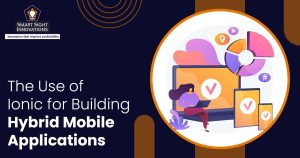 The development and eventual availability of frameworks that would support development of apps for multiple platforms has heralded a new chapter in the field of mobile app development.
The development and eventual availability of frameworks that would support development of apps for multiple platforms has heralded a new chapter in the field of mobile app development.
Developers now have the luxury of choosing either one of two development strategies – create separate native applications or build a single cross-platform app that works seamlessly across platforms. Businesses that foresee a strong potential in multiple geographies and user bases but are limited by financial and time constraints will find that building a cross-platform app is the ideal solution to build a minimum viable product.
They may also choose cross-platform development if their needs only dictate a simple mobile app with no complex visuals or features.
Cross platform development frameworks are a boon for businesses and developers alike as it enables them to create mobile apps with the same code base that can run on multiple platforms with infinitesimal changes. Today, there are several cross-platform frameworks available for mobile application development that help build world class applications.
The worldwide mobile app development market is expected to touch $100 billion by 2022. Some of the best frameworks come with some serious abilities that help developers build some amazing features such as location-based services, AR / VR capabilities and much more that add immense value to user experience.
1. React Native
React Native was released by Facebook in 2015 to help build hybrid mobile applications. It gives end users an almost native-like experience across multiple platforms and helps build more stable apps as compared to its competitors.
Important features:
- Multi-platform mobile app development offers native rendering of codes
- Supports NodeJS
- Dedicated notification and preview capabilities
- Extensive choice of ready-to-use plugins
2. Ionic
Widely regarded as the most popular framework amongst developers, in addition to cross-platform applications, Ionic also helps build interactive hybrid and Progressive Web Applications. Ionic can be installed locally for a highly visual development environment.
Important features:
- Intuitive UI
- Shorter development time
- Stable environment that gives developers complete control over app building
3. Xamarin
A framework based on .Net and built by Microsoft, Xamarin is another widely used mobile app development framework. It provides an extensive development ecosystem with several APIs, components, tools and libraries.
Important features:
- Adaptable backend infrastructure with many diagnostic tools
- In-built Android SDK manager
- Google emulator manager
4. Flutter
Developed by Google, Flutter is a UI toolkit that helps develop native applications for web, mobile and desktop. Flutter comes with customized widgets for native performance and its layered architecture enables faster turnaround times for component rendering.
Important features:
- In-built material design and iOS widgets (called Cupertino)
- Rich motion APIs
- Supports third party SDKs
5. Mobile Angular
Mobile Angular is the highly effective amalgamation of HTML5, Bootstrap and Angular JS. It provides simple but essential mobile app development components that are missing from Bootstrap 3 such as sidebars, switches, overlays, etc.
Important features:
- Helps develop hybrid desktop & mobile apps
- No dependencies on jQuery
- Helps compose responsive UIs with a small CSS file
6. Node.JS
A cross-platform framework built on V8, Node.JS is a server-side runtime framework that compiles and runs JavaScript in real time. This framework is specifically renowned for shorter development turnround times because it compiles JavaScript to machine code instead of interpreting or executing it as bytecode.
Important features:
- Executes all queries at once to boost response times
- V8 engine is one of the quickest dynamic language interpreters
- Large community of active contributors
7. NativeScript
An open-source cross-platform framework that helps build apps with XML, CSS, and JavaScript. It does not require any plugins to access the camera, GPS, etc. – which separates it from its contemporaries.
Important features:
- Extensive array of in-built plugins that renders third party plugins obsolete
- Provides a native UI without using WebViews
- Supports AndroidArsenal and Cocoapods components
8. Appcelerator Titanium
First released in 2008, Appcelerator Titanium is an open-source framework that equips developers with features such as device functionality, MVC-based framework, and cross-platform APIs that provide easy access to native UI. It simplifies the app development process with its native modules.
Important features:
- Comes with pre-built connectors for Salesforce, Box Microsoft SQL and Microsoft Azure
- Easy integration with continuous delivery systems
- Comprehensive tools for quick application development
Smart Sight Innovations’ expertise in cross platform app development is unparalleled. Connect with our experts today to build an app that helps expand your business.













